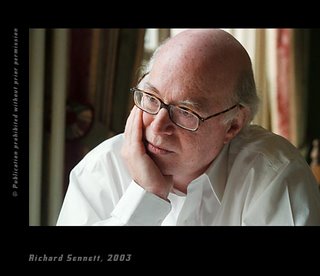Some Consumption Links


Find out more about Don Slater here. Other useful/amusing websites include Global Consumer Culture, Adbusters, and Popcultures.com.





“ Our personalities, subjectivities, and ‘relationships’ are not private matters, if this implies they are not objects of power. On the contrary, they are intensively governed.”
“ This book is about the powers that have come to bear upon the subjective experience of people and their relations with one another: political power, economic power, institutional power, expert power, technical power, cognitive power.”
“ These new ways of thinking and acting do not just concern the authorities. They affect each of us, our personal beliefs, wishes and aspirations, in other words, our ethics. The new languages for construing, understanding and evaluating ourselves and others have transformed the ways in which we interact with our bosses, employees, workmates, husbands, wives, lovers, mothers, fathers, children and friends. Our thought worlds have been reconstructed, our ways of thinking about and talking about our personal feelings, our secret hopes, our ambitions and disappointments. Our techniques for managing our emotions have been reshaped. Our very sense of ourselves has been revolutionized. We have become intensely subjective beings.” (p3)
“ These new forms of regulation do not crush subjectivity. They actually fabricate subjects – human men, women and children – capable of bearing the burdens of liberty.” (viii)
“ There is a sense of ethical paucity of the contemporary obligation to fulfil ourselves through the mundane achievements of our everyday lives, and to evaluate all aspects of our lives in terms of the extent to which they do or do not contribute to such an inexorable trajectory of self-improvement and personal happiness through career enhancement and lifestyle maximization.” (xxiv)
“ Through self-inspection, self-problematization, self-monitoring, and confession, we evaluate ourselves according to the criteria provided by others. Through self-reformation, therapy, techniques of body alteration, and the calculated reshaping of speech and emotion, we adjust ourselves by means of the techniques propounded by the experts of the soul. The government of the soul depends upon our recognition of ourselves as ideally and potentially certain sorts of person, the unease generated by a normative judgement of what we are and could become, and the incitement offered to overcome this discrepancy by following the advice of experts in the management of the self.” (p11)

“In modernity individuals move between a great number of social circles each of which only involves part of his personality. This segmentation of associations provides us with a greater sense of uniqueness and freedom - a consciousness of the self which encourages individualism.”
“... the deepest problems of modern life derive from the claim of the individual to preserve the autonomy and individuality of his existence in the face of overwhelming social forces...” [Simmel]
“ There have always been individuals with problems, but once these would have been seen as moral choices in the context of the community or as struggles with the forces of destiny; the change has been towards seeing them in terms of individual morality with individual solutions and in terms of mental illness, psychological problems.” [Ian Craib, The Importance of Disappointment (1994) p98]
“ If they fall ill, it is because they were not resolute and industrious enough in following the health regime. If they stay unemployed, it is because they failed to learn the skills of winning an interview or because they did not try hard enough to find a job or because they are, purely and simply, work-shy. If they are not sure about their career prospects and agonise about their future, it is because they are not good enough at winning friends and influencing people and have failed to learn as they should the arts of self-expression and impressing the others. This is, at any rate, what they are told – and what they have come to believe, so they behave ‘as if’ this was, indeed, the truth of the matter. As Beck aptly and poignantly puts it, ‘how one lives becomes a biographical solution to systematic contradictions.’ Risks and contradictions go on being socially produced; it is just the duty and the necessity of coping with them that has been individualized.” [Zygmunt Bauman, Individualized Society (2001) p47]
“ … what is valuable in Freud, and the psychoanalytic theorists who followed him, is the always implicit, sometimes explicit, message that we can never quite be who we want to be.” (Ian Craib)
“ Psychoanalytic insights cannot offer us any precise solutions but they can enable us to see problems more clearly because they take account of the irrational as well as the rational elements that are inherent in them.” (Ros Minsky)
“ In contrast to other areas of knowledge, psychoanalytic theory rests fundamentally on how the baby and then small child comes, unconsciously, to discover a way of being rather than existing and to make sense of itself, its parents, its siblings and the non-sense of the world in which it tries to place itself.” (Ros Minsky)